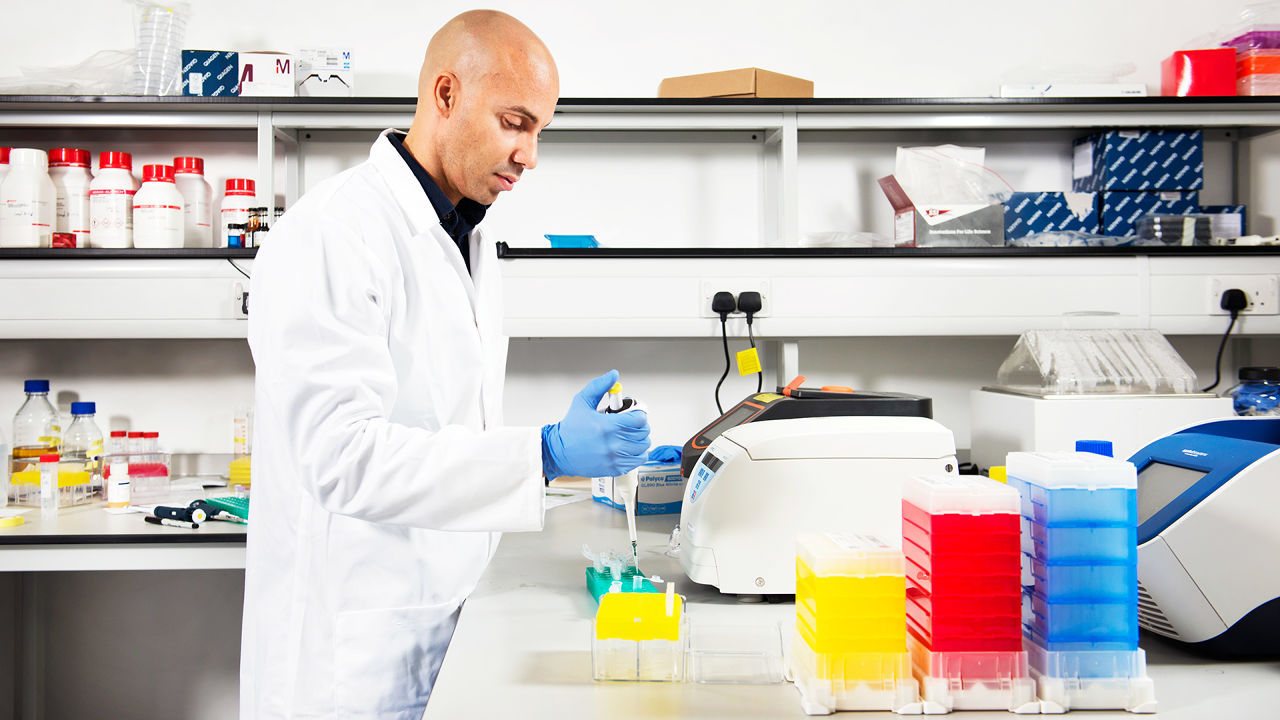Microsoft Research working on cancer treatments
3 min. read
Updated on
Read our disclosure page to find out how can you help MSPoweruser sustain the editorial team Read more

In a special report FastCompany has revealed that Microsoft Research scientists in Cambridge are working on cancer treatments in their newly installed wet lab with the aim of “solving” cancer in 10 years.
The report looks at the work in two areas in particular. One is Biological Modelling that involves using advanced computation to map the complex interactions at work inside a cell with the eventual goal is to make cells into living computers that could someday be programmed—and even reprogrammed—to treat diseases like cancer.
“The field of biology and the field of computation might seem like chalk and cheese,” says Chris Bishop, head of Microsoft Research’s Cambridge-based lab, “But the complex processes that happen in cells have some similarity to those that happen in a standard desktop computer.”
Microsoft is currently working on modeling the computational processes that happen within the cell and also developing of a tool for scientists and researchers to create their own computer models of biological systems. Pharmaceutical giant AstraZeneca is partnering with Fisher’s team on the latter project, dubbed Bio Model Analyzer, an effort to better understand drug interactions and resistance in patients with chronic myeloid leukemia.
For AstraZeneca’s Jonathan Dry, the Bio Model Analyzer is shaping up to be useful in better understanding which patients will form a resistance to a drug therapy. “I’m hoping this is the beginning of changing the way we do drug discovery,” he says. “We could … test all our ideas in a system like this, and determine the experiments that will have the best chance of success.”
In another project the head of Microsoft Research’s Bio Computation Group, Andrew Phillips, is working on an effort to understand how cells make decisions, including those that trigger cancer. The goal is to develop a programming language to model the relationships between the biological components, and potentially control how cells behave. If that’s possible, Phillips says, a response could be triggered within a cell to fight the disease before it spreads.
Phillips is aware of the challenges of applying a programming approach to biological system, noting ‘You can think of computing of being a sequence of instructions like a recipe. In a biological setting you have a chemical soup.”
He, and the 150 other scientists in Cambridge are however quietly optimistic, and expect near term results to assist pharmaceutical companies in drug discovery and development.
Read more about their work at FastCompany here.








User forum
0 messages